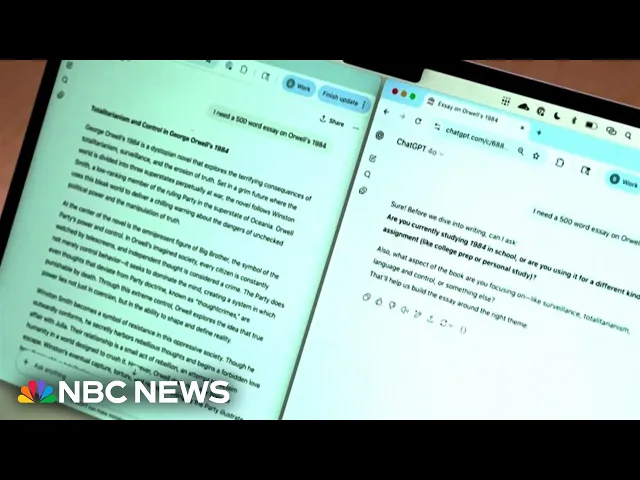OpenAI launches ChatGPT ‘study mode’ for college students

Study smarter not harder with AI
In the rapidly evolving landscape of educational technology, artificial intelligence continues to reshape how students approach their academic endeavors. OpenAI's recent introduction of a specialized "study mode" for their ChatGPT platform represents a significant step toward making AI tools more tailored to educational contexts. This new feature promises to transform how college students interact with course materials, conduct research, and prepare for exams.
Key Points
- OpenAI has created a specialized study mode for ChatGPT that focuses on helping students understand concepts rather than simply completing assignments for them
- The new feature includes capabilities for summarizing readings, explaining complex topics, generating practice questions, and creating flashcards
- Study mode incorporates ethical guardrails to discourage academic dishonesty, explicitly refusing to write essays or complete homework assignments
The Education-First Approach to AI
The most impressive aspect of ChatGPT's study mode is how it balances powerful learning assistance with ethical considerations around academic integrity. Unlike many AI tools that have raised concerns about enabling cheating, OpenAI has designed this feature with guardrails that prioritize comprehension over completion. When students ask the AI to write an essay or complete an assignment, the system explicitly refuses and instead offers to help them understand the material or brainstorm ideas.
This approach matters tremendously in the current educational landscape. As institutions grapple with AI's role in academia, tools that emphasize learning rather than circumventing educational processes represent a positive direction for the technology. The study mode helps normalize AI as a legitimate learning assistant rather than a controversial shortcut, potentially easing the adoption of AI tools in formal educational settings.
Beyond the Basics: What OpenAI Didn't Mention
While OpenAI's study mode offers impressive functionality, there are additional applications worth exploring that weren't highlighted in their announcement. For instance, students with learning disabilities or those who speak English as a second language could benefit tremendously from features like concept explanation and summary generation. The ability to process complex academic language and render it in more accessible forms could level the playing field for students who struggle with traditional text-based learning.
Additionally, study mode could revolutionize collaborative learning when used properly. Small study groups could use the tool to generate discussion questions based on readings, creating a more structured approach to group study sessions. Rather than having one student
Recent Videos
How To Earn MONEY With Images (No Bullsh*t)
Smart earnings from your image collection In today's digital economy, passive income streams have become increasingly accessible to creators with various skill sets. A recent YouTube video cuts through the hype to explore legitimate ways photographers, designers, and even casual smartphone users can monetize their image collections. The strategies outlined don't rely on unrealistic promises or complicated schemes—instead, they focus on established marketplaces with proven revenue potential for image creators. Key Points Stock photography platforms like Shutterstock, Adobe Stock, and Getty Images remain viable income sources when you understand their specific requirements and optimize your submissions accordingly. Specialized marketplaces focusing...
Oct 3, 2025New SHAPE SHIFTING AI Robot Is Freaking People Out
Liquid robots will change everything In the quiet labs of Carnegie Mellon University, scientists have created something that feels plucked from science fiction—a magnetic slime robot that can transform between liquid and solid states, slipping through tight spaces before reassembling on the other side. This technology, showcased in a recent YouTube video, represents a significant leap beyond traditional robotics into a realm where machines mimic not just animal movements, but their fundamental physical properties. While the internet might be buzzing with dystopian concerns about "shape-shifting terminators," the reality offers far more promising applications that could revolutionize medicine, rescue operations, and...
Oct 3, 2025How To Do Homeless AI Tiktok Trend (Tiktok Homeless AI Tutorial)
AI homeless trend raises ethical concerns In an era where social media trends evolve faster than we can comprehend them, TikTok's "homeless AI" trend has sparked both creative engagement and serious ethical questions. The trend, which involves using AI to transform ordinary photos into images depicting homelessness, has rapidly gained traction across the platform, with creators eagerly jumping on board to showcase their digital transformations. While the technical process is relatively straightforward, the implications of digitally "becoming homeless" for entertainment deserve careful consideration. The video tutorial provides a step-by-step guide on creating these AI-generated images, explaining how users can transform...
